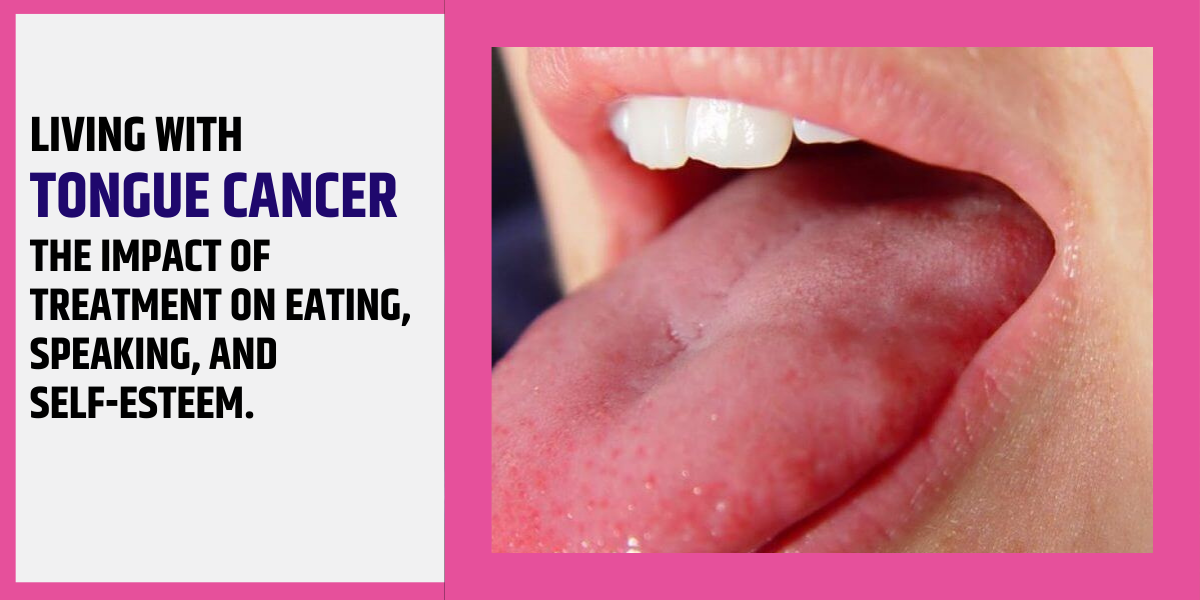Living with Tongue Cancer: The Impact and of Treatment on Eating, Speaking, and Self-Esteem.
What is Tongue Cancer?
Tongue cancer is a form of oral cancer that originates in the cells of the tongue. It is often detected through symptoms like persistent sores, pain, or difficulty swallowing. If you or a loved one is facing a diagnosis, it’s crucial to consult a knowledgeable specialist. Dr. Ashish Pokharkar, a cancer specialist in PCMC, can provide expert guidance and tailored treatment plans.
How does cancer affect your daily life?
Eating and Nutrition:
Chewing and Swallowing Difficulties: Tongue cancer can significantly impact your ability to chew and swallow. This can lead to difficulty eating solid foods, changes in eating habits, and potential weight loss. Patients might need to adjust their diet to softer, easier-to-swallow foods.
Nutritional Support: Working with a dietitian can help manage these changes and ensure that you receive adequate nutrition during treatment.
Speaking:
Speech Challenges: The tongue plays a vital role in speech. Cancer and its treatment can affect speech clarity and articulation. This may result in challenges with pronouncing words and making yourself understood.
Speech Therapy: Engaging in speech therapy can aid in improving communication skills and adapting to any changes in speech function.
Self-Esteem and Body Image:
Visible Changes: Depending on the stage and treatment, there might be visible changes to the appearance of the tongue or mouth area. This can impact self-esteem and social interactions.
Emotional Support: Psychological support and counseling can help address issues related to body image and self-esteem. Support groups and counseling can offer a safe space to express concerns and receive encouragement.
What are the best treatments for tongue cancer?
Surgery:
Surgery is a primary treatment for tongue cancer, aiming to remove the tumor while preserving as much of the tongue’s function as possible. Options include a partial glossectomy for smaller tumors, which may lead to minor changes in speech and swallowing, or a total glossectomy for more extensive cases, potentially requiring extensive rehabilitation. Neck dissection may also be performed to remove affected lymph nodes. Post-surgery, patients often need speech and swallowing therapy, and reconstructive surgery might be necessary. While surgery can significantly impact eating, speaking, and self-esteem, these effects can be managed with proper rehabilitation and support.
Radiation Therapy:
Purpose: Radiation therapy uses high-energy rays to target and kill cancer cells. It is often used as a primary treatment or adjuvantly to surgery.
Side Effects: This may include dryness of the mouth, sore throat, and changes in taste.
Chemotherapy:
Indications: Chemotherapy may be recommended to target cancer cells throughout the body, especially if the cancer has spread.
Side Effects: Common side effects include nausea, fatigue, and hair loss. Managing these effects is crucial for maintaining quality of life during treatment.
Targeted Therapy:
Overview: Targeted therapies focus on specific molecules involved in cancer growth. These therapies can offer a more personalized approach to treatment with potentially fewer side effects.
Living Well with Tongue Cancer
Follow-Up Care:
Regular Check-Ups: After initial treatment, regular follow-up appointments are essential to monitor recovery and detect any recurrence of cancer early.
Ongoing Support: Continuous support from healthcare providers, including oncologists, dietitians, and speech therapists, is vital for managing long-term effects.
Lifestyle Adjustments:
Healthy Habits: Adopting a balanced diet, staying hydrated, and engaging in regular exercise can help support overall health and recovery.
Emotional Wellbeing: Managing stress and maintaining a positive outlook are important. Engaging in hobbies and staying connected with loved ones can also enhance quality of life.
Living with tongue cancer presents various challenges, but with the right treatment and support, many individuals lead fulfilling lives. Consulting with a specialized cancer doctor like Dr. Ashish Pokharkar, a respected cancer specialist in PCMC, can provide personalized care and guidance tailored to your needs. Through a combination of medical treatment, support services, and lifestyle adjustments, managing the impact of tongue cancer is possible, enabling individuals to navigate their journey with greater confidence and hope.





